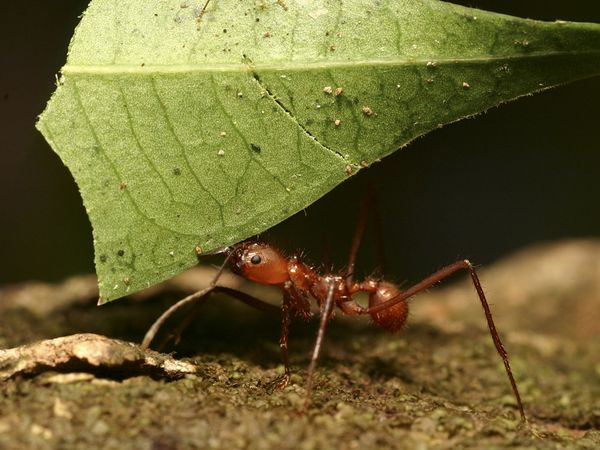Scientists discovered that ant colonies – one of nature’s most ancient and efficient societies – are able to form a “collective memory” of their enemies.
When one ant fights with an intruder from another colony it retains that enemy’s odor: passing it on to the rest of the colony.
This enables any of its nest-mates to identify an ant from the offending colony.
The findings are reported in the journal Naturwissenschaften.
For many ant species, chemicals are key to functioning as a society. Insects identify their nest-mates by the specific “chemical signature” that coats the body of every member of that nest.
The insects are also able to sniff out any intruder that might be attempting to invade.

This study, carried out by a team from the University of Melbourne in Australia, set out to discover if ants were able to retain memories of the odors they encounter.
The scientists studied the tropical weaver ant (Oecophylla smaragdina), which builds is home in trees; one nest can contain up to 500,000 workers.
The team set up a “familiarization test” to allow ants from one nest to encounter intruders from another.
Over a series of trials, they placed an ant from a “focal nest” into a tiny observation arena with an ant from another nest.
After 15 of these familiarizing face-offs, the team set up a fake ant invasion.
They placed 20 worker ants from the now “familiar” nest on or near the focal nest.
“These intruders were typically attacked by the resident workers,” the researchers reported in their paper.
The ants defending their colony reacted much more aggressively towards intruders from a nest that a few of their workers had been familiarized with.
The team explained that “this increased aggression was… specifically targeted toward the <<familiar>> colony, and persisted for at least 6 days” after the familiarization trials.
Lead researcher Prof. Mark Elgar explained that all of the ants in the colony were able to draw on the experience of one worker.
Prof. Mark Elgar described this as collective or “corporate wisdom”.
In human terms, Prof. Mark Elgar explained: “[imagine] you have had an unsavory experience with a particular group of people with a distinguishing feature – perhaps they all wear the same colored scarf of their football team.
“And you warned your colleagues to look out for people wearing that colored scarf.
“One of the colleagues that heard you might subsequently tell another colleague who wasn’t in the room when you made your comment.
“That colleague has acquired the information indirectly from the collective memory of you and your work colleagues.
“Change colleagues to ants, and scarf color to odor and you’ve got our story.”
